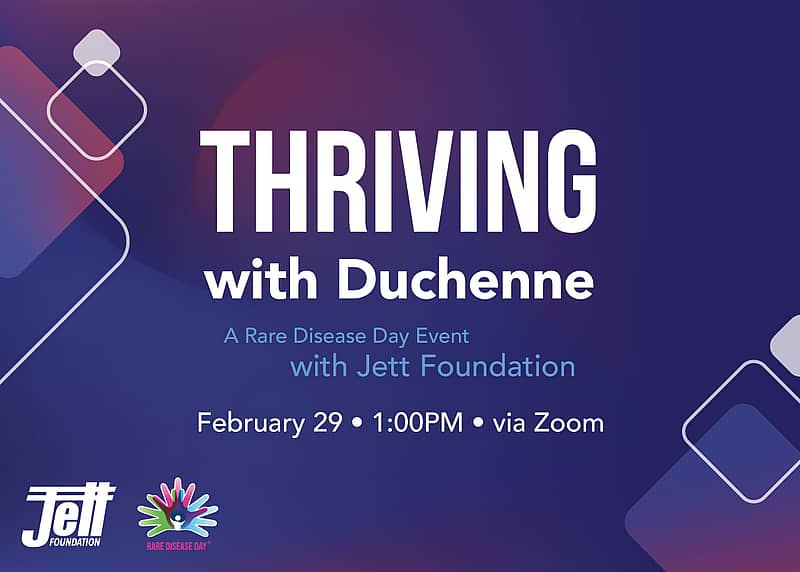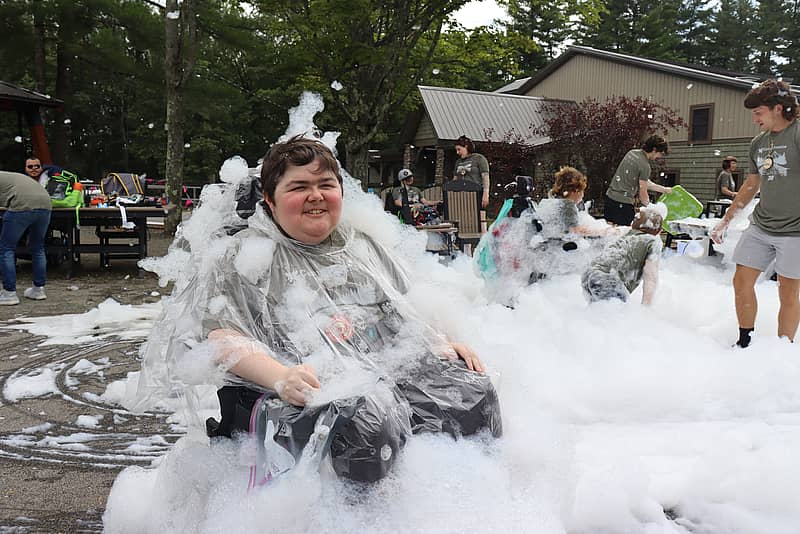
On Monday, May 20, Dyne Therapeutics announced positive clinical data from its ongoing Phase 1/2 ACHIEVE trial of DYNE-101 in patients with myotonic dystrophy type 1 and its ongoing Phase 1/2 DELIVER trial of DYNE-251 in patients with Duchenne muscular dystrophy who are amenable to exon 51 skipping.
Please continue reading to view their full press release.
WALTHAM, Mass., May 20, 2024 (GLOBE NEWSWIRE) — Dyne Therapeutics, Inc. (Nasdaq: DYN), a clinical-stage muscle disease company focused on advancing innovative life-transforming therapeutics for people living with genetically driven diseases, today announced positive clinical data from its ongoing Phase 1/2 ACHIEVE trial of DYNE-101 in patients with myotonic dystrophy type 1 (DM1) and its ongoing Phase 1/2 DELIVER trial of DYNE-251 in patients with Duchenne muscular dystrophy (DMD) who are amenable to exon 51 skipping. New data from both trials demonstrated compelling impact on key disease biomarkers as well as improvement in multiple functional endpoints and favorable safety profiles.
“We are excited to report new clinical data from both our ACHIEVE and DELIVER trials demonstrating meaningful impact on key biomarkers and functional improvement in multiple clinical endpoints that matter to patients. We believe these data reflect the best-in-class potential for these product candidates and reinforce the opportunity to transform the treatment of DM1 and DMD as well as the potential of the FORCE platform to address other rare muscle diseases,” said John Cox, Dyne’s president and chief executive officer.
“We believe the breadth and depth of these data are truly differentiating. Our robust preclinical work is translating into clinical benefit along with favorable safety profiles for both DYNE-101 and DYNE-251. In ACHIEVE, treatment with DYNE-101 demonstrated consistent, dose-dependent splicing correction, which led to an improvement in muscle strength, function, and patient reported outcomes. In DELIVER, treatment with DYNE-251 resulted in dystrophin expression that exceeded levels that have been reported for the standard of care for DMD as well as trends in functional improvement earlier than expected,” said Wildon Farwell, M.D., MPH, Dyne’s chief medical officer. “The DM1 and Duchenne communities have waited too long for new and better therapeutic options. Building on the strength of these encouraging data and recent regulatory interactions, we look forward to continuing to engage with global regulatory authorities throughout this year to pursue expedited approval pathways and address the urgent unmet medical needs in these communities. We are thankful to the participants and clinicians in these trials and the communities for their continued partnership.”
Phase 1/2 ACHIEVE Trial of DYNE-101 in DM1
Efficacy Data
Dyne reported efficacy data from 40 adult DM1 patients enrolled in the randomized, placebo-controlled multiple ascending dose (MAD) portion of the DYNE-101 ACHIEVE trial, including 12-month data from the 1.8 mg/kg Q4W (approximate ASO dose) cohort (n=16), 6-month data from the 3.4 mg/kg Q4W cohort (n=16), and 3-month data from the 5.4 mg/kg Q8W cohort (n=8).
In the ACHIEVE trial, DYNE-101 demonstrated robust muscle delivery and dose-dependent, consistent splicing correction while also showing improvement in multiple functional endpoints and patient reported outcomes.
Key findings from ACHIEVE include:
Splicing
- DYNE-101 continued to show dose dependent splicing correction as seen in earlier cohorts. Patients in the 5.4 mg/kg Q8W cohort had a 27% mean splicing correction from baseline across a broad, 22-gene panel at 3 months, with all participants demonstrating splicing correction.
Function
- Myotonia (vHOT): DYNE-101 demonstrated an improvement in myotonia as measured by video hand opening time (vHOT) in all reported cohorts. The 1.8 mg/kg Q4W group had a mean 3.1 second benefit in myotonia at 3 months that increased to 4.4 seconds at 12 months. In addition, the 5.4 mg/kg Q8W cohort had a mean 4.5 second improvement in myotonia at 3 months.
- Strength and Timed Assessments: DYNE-101 demonstrated an improvement in muscle strength as measured by Quantitative Myometry Testing (QMT), a test of muscle strength and fatigue, and early and sustained potential benefit in 10-Meter Walk/Run Test and 5 Times Sit to Stand Test.
Patient Reported Outcomes (PROs)
- Myotonic Dystrophy Health Index (MDHI): DYNE-101 demonstrated an overall improvement in the MDHI and benefit in all 17 subscales, including those that assess peripheral muscles, central nervous system, and gastrointestinal measures. These represent some of the most burdensome manifestations of DM1 and daily quality of life issues for patients and their families.
- Myotonic Dystrophy Type 1 Activity and Participation Scale (DM1-ACTIVc): Treatment with DYNE-101 resulted in an improvement in the assessment of various activities of daily living, as measured by DM1-ACTIVc.
Safety and Tolerability Data
- Dyne also reported safety and tolerability data from 56 patients enrolled through the 6.8 mg/kg Q8W cohort of the MAD portion of the ACHIEVE trial. DYNE-101 demonstrated a favorable safety profile.2 The majority of treatment emergent adverse events were mild or moderate and no related serious treatment emergent adverse events have been identified.
- Enrollment is complete through the 6.8 mg/kg Q8W cohort. Approximately 500 doses have been administered to date, representing over 40-patient years of follow-up and supporting dose escalation up to 10.2 mg/kg.
Phase 1/2 DELIVER Trial of DYNE-251 in DMD
Efficacy Data
Dyne reported efficacy data from 8 male patients with DMD amenable to exon 51 skipping enrolled in the 10 mg/kg (approximate PMO dose) cohort of the randomized, placebo-controlled MAD portion of the DYNE-251 DELIVER trial. Patients were randomized to receive either DYNE-251 (n=6) or placebo (n=2) once every four weeks for 6 months.
10 mg/kg of DYNE-251 Q4W demonstrated dose-dependent exon skipping and dystrophin expression. DYNE-251 reached levels of dystrophin expression that exceeded levels reported in a clinical trial for the current weekly standard of care for DMD exon 51, eteplirsen, at 6 months1 with a 12-fold lower PMO dose. DYNE-251 also demonstrated encouraging trends in multiple functional endpoints.
Key findings from DELIVER include:
Dystrophin expression measured by Western blot
- Patients treated with 10 mg/kg of DYNE-251 Q4W had a mean absolute dystrophin level of 3.22% of normal and a 2.97% change (unadjusted for muscle content) from baseline at 6 months. Eteplirsen reached a mean absolute unadjusted dystrophin level of 0.30% of normal and a 0.06% change from baseline at 6 months.1 When adjusting for muscle content, the DYNE-251 treated group reached 7.64% mean absolute dystrophin, which is greater than levels reported by peptide conjugate PMOs in clinical development.3
Function
- Trends in improvement were observed in multiple functional endpoints in the 10 mg/kg DYNE-251 Q4W group at 6 months, including North Star Ambulatory Assessment (NSAA), Stride Velocity 95th Centile (SV95C), 10-Meter Walk/Run Time, and Time to Rise from Floor.
Safety and Tolerability Data
- Dyne also reported safety and tolerability data from 48 patients enrolled through the 40 mg/kg Q8W cohort of the MAD portion of the DELIVER trial. DYNE-251 demonstrated a favorable safety profile.4 The majority of treatment emergent adverse events were mild or moderate and no related serious treatment emergent adverse events have been identified.
- Enrollment is complete through the 40 mg/kg cohort. Approximately 480 doses have been administered to date, representing over 35 patient-years of follow-up, supporting dose escalation up to 40 mg/kg.
Key Milestones
ACHIEVE and DELIVER Trials
- Dyne plans to continue to engage with global regulators this year on ACHIEVE and DELIVER, and anticipates providing an update on the path to registration for both DYNE-101 and DYNE-251 by the end of 2024. Both trials are designed to be registrational, and the company is pursuing expedited approval pathways for both programs.
- In DM1, based on recent dialogue with the Center for Drug Evaluation and Research (CDER) division of the U.S. Food and Drug Administration (FDA), Dyne continues to pursue an accelerated approval pathway for DYNE-101, including leveraging splicing as a potential surrogate biomarker.
- In DMD, Dyne has confirmed that the FDA precedent for using dystrophin as a surrogate biomarker for accelerated approval remains available.
FORCE™ Platform and Pipeline
- With ACHIEVE and DELIVER data continuing to reinforce the promise of the FORCE platform, Dyne expects to provide updates on programs, including facioscapulohumeral muscular dystrophy (FSHD) and other pipeline opportunities during 2024.
Virtual Investor Event
Dyne will host a live video webcast event to discuss these ACHIEVE and DELIVER data today, May 20, 2024, at 8:00 a.m. ET. The live webcast will be available on the Events & Presentations page of the Investors & Media section of Dyne’s website and a replay will be accessible for 90 days following the presentation. An accompanying slide presentation will also be available. To access the presentation, register for the live webcast and replay, please visit https://investors.dyne-tx.com/news-and-events/events-and-presentations.
About ACHIEVE
ACHIEVE is a Phase 1/2 global clinical trial evaluating DYNE-101, consisting of a 24-week multiple ascending dose (MAD) randomized placebo-controlled period, a 24-week open-label extension and a 96-week long-term extension. The trial, which is designed to be registrational, is enrolling adult patients with myotonic dystrophy type 1 (DM1) who are 18 to 49 years of age. The primary endpoints are safety and tolerability, with secondary endpoints of pharmacokinetics and pharmacodynamics, including change from baseline in splicing, as well as measures of muscle strength and function. For more information on the ACHIEVE trial, visit https://www.clinicaltrials.gov/ (NCT05481879).
About DYNE-101
DYNE-101 is an investigational therapeutic being evaluated in the Phase 1/2 global ACHIEVE clinical trial for people living with DM1. DYNE-101 consists of an antisense oligonucleotide (ASO) conjugated to a fragment antibody (Fab) that binds to the transferrin receptor 1 (TfR1) which is highly expressed on muscle. It is designed to enable targeted muscle tissue delivery with the goal of reducing toxic DMPK RNA in the nucleus, releasing splicing proteins, allowing normal mRNA processing and translation of normal proteins, and potentially stopping or reversing the disease progression. DYNE-101 has been granted orphan drug designation by the U.S. Food and Drug Administration and the European Medicines Agency for the treatment of DM1.
About Myotonic Dystrophy Type 1 (DM1)
DM1 is a rare, progressive, genetic disease that affects skeletal, cardiac and smooth muscle. It is a monogenic, autosomal dominant disease caused by an abnormal trinucleotide expansion in a region of the DMPK gene. This expansion of CTG repeats causes toxic RNA to cluster in the nucleus, forming nuclear foci and altering the splicing of multiple proteins essential for normal cellular function. This altered splicing, or spliceopathy, results in a wide range of symptoms. People living with DM1 typically experience myotonia and progressive weakness of major muscle groups, which can affect mobility, breathing, heart function, speech, digestion and vision as well as cognition. DM1 is estimated to affect more than 40,000 people in the United States and over 74,000 people in Europe, but there are currently no approved disease-modifying therapies.
About the DELIVER Trial
DELIVER is a Phase 1/2 global clinical trial evaluating DYNE-251, consisting of a 24-week multiple ascending dose (MAD) randomized placebo-controlled period, a 24-week open-label extension and a 96-week long-term extension. The trial, which is designed to be registrational, is enrolling ambulant and non-ambulant males with Duchenne muscular dystrophy (DMD) who are ages 4 to 16 and have mutations amenable to exon 51 skipping. The primary endpoints are safety, tolerability and change from baseline in dystrophin levels as measured by Western blot. Secondary endpoints include measures of muscle function, exon skipping and pharmacokinetics. For more information on the DELIVER trial, visit https://www.clinicaltrials.gov/ (NCT05524883).
About DYNE-251
DYNE-251 is an investigational therapeutic being evaluated in the Phase 1/2 global DELIVER clinical trial for people living with DMD who are amenable to exon 51 skipping. DYNE-251 consists of a phosphorodiamidate morpholino oligomer (PMO) conjugated to a fragment antibody (Fab) that binds to the transferrin receptor 1 (TfR1) which is highly expressed on muscle. It is designed to enable targeted muscle tissue delivery and promote exon skipping in the nucleus, allowing muscle cells to create a truncated, functional dystrophin protein, with the goal of stopping or reversing disease progression. DYNE-251 has been granted fast track, orphan drug and rare pediatric disease designations by the U.S. Food and Drug Administration for the treatment of DMD mutations amenable to exon 51 skipping.
In addition to DYNE-251, Dyne is building a global DMD franchise and has preclinical programs targeting other exons, including 53, 45 and 44.
About Duchenne Muscular Dystrophy (DMD)
DMD is a rare disease caused by mutations in the gene that encodes for dystrophin, a protein critical for the normal function of muscle cells. These mutations, the majority of which are deletions, result in the lack of dystrophin protein and progressive loss of muscle function. DMD occurs primarily in males and affects an estimated 12,000 to 15,000 individuals in the U.S. and 25,000 in Europe. Loss of strength and function typically first appears in pre-school age boys and worsens as they age. As the disease progresses, the severity of damage to skeletal and cardiac muscle often results in patients experiencing total loss of ambulation by their early teenage years and includes worsening cardiac and respiratory symptoms and loss of upper body function by the later teens. There is no cure for DMD and currently approved therapies provide limited benefit.
About Dyne Therapeutics
Dyne Therapeutics is a clinical-stage muscle disease company focused on advancing innovative life-transforming therapeutics for people living with genetically driven diseases. With its proprietary FORCE™ platform, Dyne is developing modern oligonucleotide therapeutics that are designed to overcome limitations in delivery to muscle tissue. Dyne has a broad pipeline for serious muscle diseases, including clinical programs for myotonic dystrophy type 1 (DM1) and Duchenne muscular dystrophy (DMD) and a preclinical program for facioscapulohumeral muscular dystrophy (FSHD). For more information, please visit https://www.dyne-tx.com, and follow us on X, LinkedIn and Facebook.
Forward-Looking Statements
This press release contains forward-looking statements that involve substantial risks and uncertainties. All statements, other than statements of historical facts, contained in this press release, including statements regarding Dyne’s strategy, future operations, prospects and plans, objectives of management, the potential of the FORCE platform, the anticipated timelines for reporting additional data from the ACHIEVE and DELIVER clinical trials and initiating registrational cohorts, expectations regarding the timing and outcome of interactions with global regulatory authorities and the availability of accelerated approval pathways for DYNE-101 and DYNE-251, and plans to provide future updates on pipeline programs, constitute forward-looking statements within the meaning of The Private Securities Litigation Reform Act of 1995. The words “anticipate,” “believe,” “continue,” “could,” “estimate,” “expect,” “intend,” “may,” “might,” “objective,” “ongoing,” “plan,” “predict,” “project,” “potential,” “should,” or “would,” or the negative of these terms, or other comparable terminology are intended to identify forward-looking statements, although not all forward-looking statements contain these identifying words. Dyne may not actually achieve the plans, intentions or expectations disclosed in these forward-looking statements, and you should not place undue reliance on these forward-looking statements. Actual results or events could differ materially from the plans, intentions and expectations disclosed in these forward-looking statements as a result of various important factors, including: uncertainties inherent in the identification and development of product candidates, including the initiation and completion of preclinical studies and clinical trials; uncertainties as to the availability and timing of results from preclinical studies and clinical trials; the timing of and Dyne’s ability to enroll patients in clinical trials; whether results from preclinical studies and initial data from early clinical trials will be predictive of the final results of the clinical trials or future trials; uncertainties as to the FDA’s and other regulatory authorities’ interpretation of the data from Dyne’s clinical trials and acceptance of Dyne’s clinical programs and the regulatory approval process; whether Dyne’s cash resources will be sufficient to fund its foreseeable and unforeseeable operating expenses and capital expenditure requirements; as well as the risks and uncertainties identified in Dyne’s filings with the Securities and Exchange Commission (SEC), including the Company’s most recent Form 10-Q and in subsequent filings Dyne may make with the SEC. In addition, the forward-looking statements included in this press release represent Dyne’s views as of the date of this press release. Dyne anticipates that subsequent events and developments will cause its views to change. However, while Dyne may elect to update these forward-looking statements at some point in the future, it specifically disclaims any obligation to do so. These forward-looking statements should not be relied upon as representing Dyne’s views as of any date subsequent to the date of this press release.
1. No head-to-head trials have been conducted comparing DYNE-251 to eteplirsen. Eteplirsen data may not be directly comparable due to differences in trial protocols, dosing regimens and patient populations. Accordingly, these cross-trial comparisons may not be reliable. Eteplirsen data from J Neuromuscul Dis. 2021; 8(6): 989–1001
2. DYNE-101 safety data as of May 8, 2024
3. No head-to-head trials have been conducted comparing DYNE-251 to SRP-5051. SRP-5051 data may not be directly comparable due to differences in trial protocols, dosing regimens, methodologies for calculating muscle content adjusted dystrophin and patient populations. Accordingly, these cross-trial comparisons may not be reliable. SRP-5051 data from Clinical Update: MOMENTUM (Study SRP-5051-201, Part B) Jan. 29, 2024.
4. DYNE-251 safety data as of April 30, 2024
Contacts:
Investors
Amy Reilly
[email protected]
857-341-1203
Media
Stacy Nartker
[email protected]
781-317-1938






